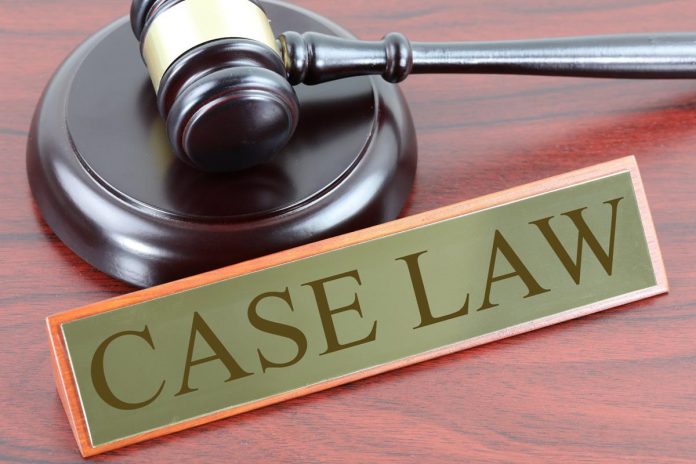This article has been written by Priscilla Esther Deborah S pursuing a Diploma in General Corporate Practice: Transactions, Governance and Disputes from LawSikho.
This article has been published by Sneha Mahawar.
Table of Contents
Introduction
The Hon’ble Supreme Court of India has through its various decisions, laid down a bunch of guiding principles that hold conspicuousness in determining whether a company director is liable to be prosecuted for the offence charged or otherwise. This article focuses on the case of Shiv Kumar Jatia Vs. State (NCT of Delhi) (Criminal Appeal No. 1263 of 2019) for which the Supreme Court had given its decision on August 23, 2019. Through this case, the Court has emphasised the standards and variables that should be investigated while discovering the culpability of the director of a company. Three criminal appeals were filed in the High Court of Delhi and the same stands disposed of by the supreme court’s order.
The Honourable Court held that criminal proceedings should be quashed against the Managing Director of the Company when the allegations are vague and there were no allegations of an active role in the incident with criminal intent. Let’s have an elaborate view of this case. The judgement starts with the statement “Leave granted” which means that the court has admitted the petition and would hear it as an appeal.
Facts of the case
Initially, an FIR was filed on October 19, 2013, with the R.K Puram Police Station under Section 308 of the Indian Penal Code (Attempt to commit culpable homicide) due to the receipt of information that Gaurav Rishi who was admitted to Fortis Hospital, located at Vasant Kunj had fallen down from stairs at the Hyatt Regency, New Delhi. The investigation proved that there were no ingredients for the said offence. After which the appellants – Aseem Kapoor and Shiv Kumar Jatia who were registered as accused No.4 and accused No.2 respectively, along with 6 others were charged for offences committed under Section 336/338 read with Section 32 of IPC 1860 and Section 4 of Cigarettes and Other Tobacco Products (Prohibition of Trade and Commerce, Production, Supply and Distribution) Act 2003. Hotel Hyatt Regency, New Delhi is run by a publicly listed company, Asian Hotels (North) Limited (“Asian Hotels”).
On investigation, it was revealed that Gaurav, the injured, had fallen down from the terrace of the 6th floor to the 4th floor of the hotel – Hyatt Regency. Gaurav had joined two US Nationals namely, Ms Rebecca and Ms Margarita at the hotel where the three of them were having food and wine in the club that is on the 6th floor of the hotel and frequented the terrace for smoking. There is an executive lounge on the 6th floor where all three of them were sitting and used the terrace adjacent to it for smoking. It was found that Gaurav fell from the 6th floor of the terrace to the 4th floor of the hotel and in the process, injured himself.
According to the prosecution, the terrace was dark and without light. However, the terrace permitted the guests for smoking which was a mistake on the part of the hotel management for allowing guests to access an area that was not safe. The reply from the office of the Deputy Health Officer of the South Delhi Municipal corporation obtained through an RTI alleged that no health trade licence was granted to the hotel for the said terrace on the 6th floor.
It has to be noted that Mr Shiv Kumar Jatia and Mr Aseem Kapoor had filed petitions under Section 482 of the Code of Criminal Procedure, 1973 before the High Court of Delhi, in order to get the proceedings initiated against them to be quashed by the court. However, the Court ordered that it was not proper to quash the proceedings against them, following which the said persons challenged the same order of the Delhi High Court before the Supreme Court.
List of appellants
Shiv Kumar Jatia is the Managing Director of M/s Asian Hotels (North) Limited which runs the Hotel Hyatt Regency. He is the only non-independent Executive Director of the Company.
Apart from Mr Shiv Jatia,
- Aseem Kapoor who is the general manager of the Hyatt Regency and looks after the day-to-day affairs of the hotel;
- P.R Subramanian who is the lodging licence holder;
- Lt. Col. Deepak Khanijou (Ret.) who is the Director of Security;
- Mr Karan Lal, the front office manager;
- Pawan Kumar Singh – Assistant manager, food and beverages; and
- Amit Ghildiyal, the food and beverages trainee;
were also named in the charge sheet.
Observation
From the investigation, it was proven through the Medical reports that Gaurav was not in an inebriated state at the time of the fall. This meant that he fell off the terrace just because of his negligence. Although it was dark on the terrace and there was no light, the Managing Director cannot be held liable only on the ground of his professional capacity. It is common and basic knowledge that smoking on a dark terrace at night is not a wise idea, beyond that whoever does so is liable for his own actions and cannot blame another person for the negligence on their part in case of injury or accident that might happen.
Judgment
The Supreme Court took into consideration the fact that Mr Jatia was not present in the country on the day when the incident took place. The allegations were made against the company and the other staff members who were present at the premises as they were discharging their respective duties in association with the day-to-day activities allocated to them. Also, it must be noted that the licence of the hotel was not obtained in the name of the managing director. At this juncture only one point is clear is that Mr Jatia is unnecessarily being named in the charge sheet just because he is the one who chairs various meetings, instrumental in taking decisions and authorises important documents in his executive capacity.
The Supreme Court with reference to the decision in the case Sunil Bharti Mittal v. the Central Bureau of Investigation brought to light the fact that in order for a person to be accused just because of his executive position as a Director, Managing Director or Chairman of a company,
there must be
- Necessary evidence to prove the person’s role in the act along with criminal intent.
- Direct nexus of the criminal intent with the accused.
The Court further placed reliance upon its judgement in the case of Maksud Sayed v. State of Gujarat & Ors. where the Court held that the penal code does not contain any provision which provides punishment explicitly for the vicarious liability of directors, and even if it did, the complainant must make requisite allegations by upholding the vicarious liability provision in the right stance.
The Delhi High Court’s order was further quashed by the Supreme Court which held that the Managing Director need not be held liable because Gaurav had the fall from the terrace only on account of his own negligence and the Managing Director of a hotel cannot be accused merely on grounds of him being the person in charge at the time of the occurrence of the incident. While setting aside the Delhi High Court’s Order the Apex Court stated that since the allegations made against the managing director are vague in nature, it constitutes good ground for quashing the proceeding under Section 482 of the Criminal Procedure Code, 1973, as was held in the case Sharad Kumar Sanghi v. Sangita Rane.
Analysis
The current judgment gives confidence to the long-standing law that has developed over the course of the years in consonance with the liability of the Directors. Under criminal law, for the indictment of a director when a company perpetrates an offence that is contrasted from one circumstance to another, cardinal standards of criminal justice require ‘mens rea’ as a fundamental element for the indictment of the offender.
‘Mens rea’ refers to criminal intent. The literal translation from Latin is “guilty mind.” ‘Mens rea’ refers to the state of mind statutorily required in order to convict a particular defendant of a particular crime, the lack of the same negates the crime situation under any given circumstance. Therefore, for any offence committed by a company in which no allegation regarding “negligence with criminal intent” attributable to the director is made out in the charges levelled, the prosecution against the director must fail.
Conclusion
This decision of the Supreme Court on the imputation of Criminal Liability on the Managing Director in the case of Shiv Kumar Jatia v. State (NCT of Delhi) perceived that criminal liability requires consideration of ‘mens rea’. By requiring that actual negligence that is on the part of the Director be proved compulsorily as a pre-condition for holding a director liable, the court has endeavoured to provide protection to Executive Directors from taking the fall on behalf of the company for an act in which they have no relation with just on account of their executive status.
References
Students of Lawsikho courses regularly produce writing assignments and work on practical exercises as a part of their coursework and develop themselves in real-life practical skills.
LawSikho has created a telegram group for exchanging legal knowledge, referrals, and various opportunities. You can click on this link and join:
Follow us on Instagram and subscribe to our YouTube channel for more amazing legal content.
 Serato DJ Crack 2025Serato DJ PRO Crack
Serato DJ Crack 2025Serato DJ PRO Crack












 Allow notifications
Allow notifications


